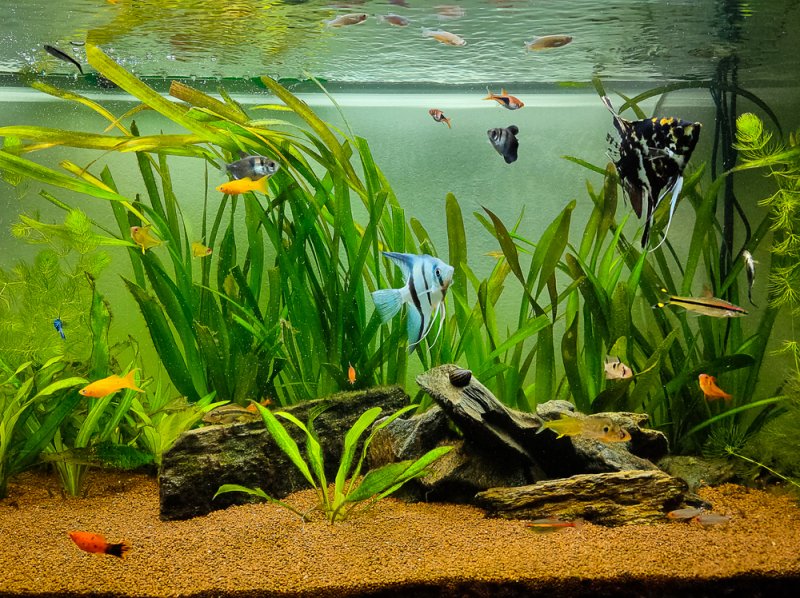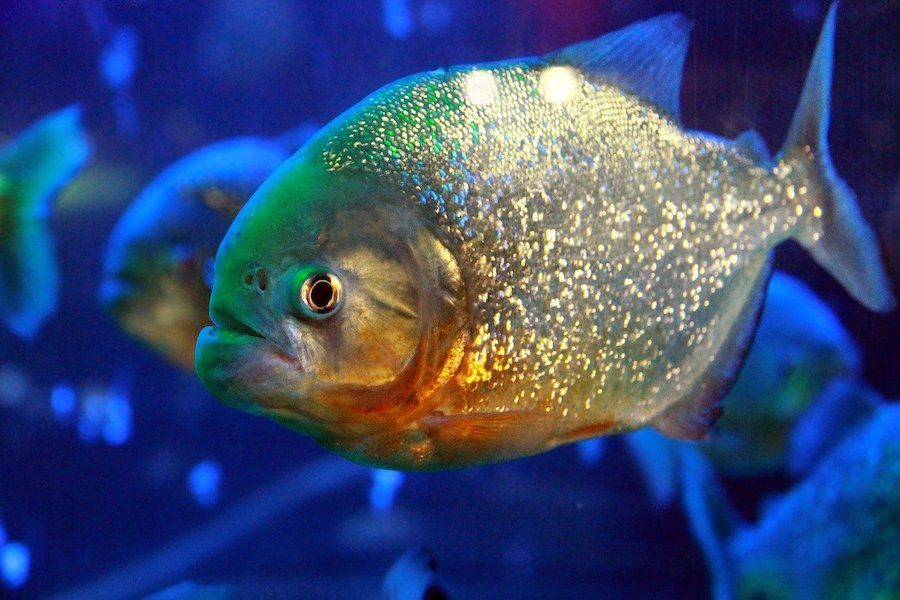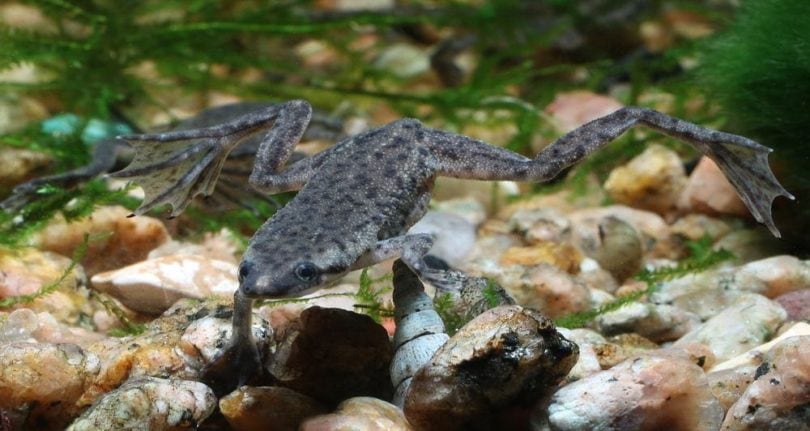6 Great Tank Mates for Electric Blue Rams: Compatibility Guide 2024

Updated on
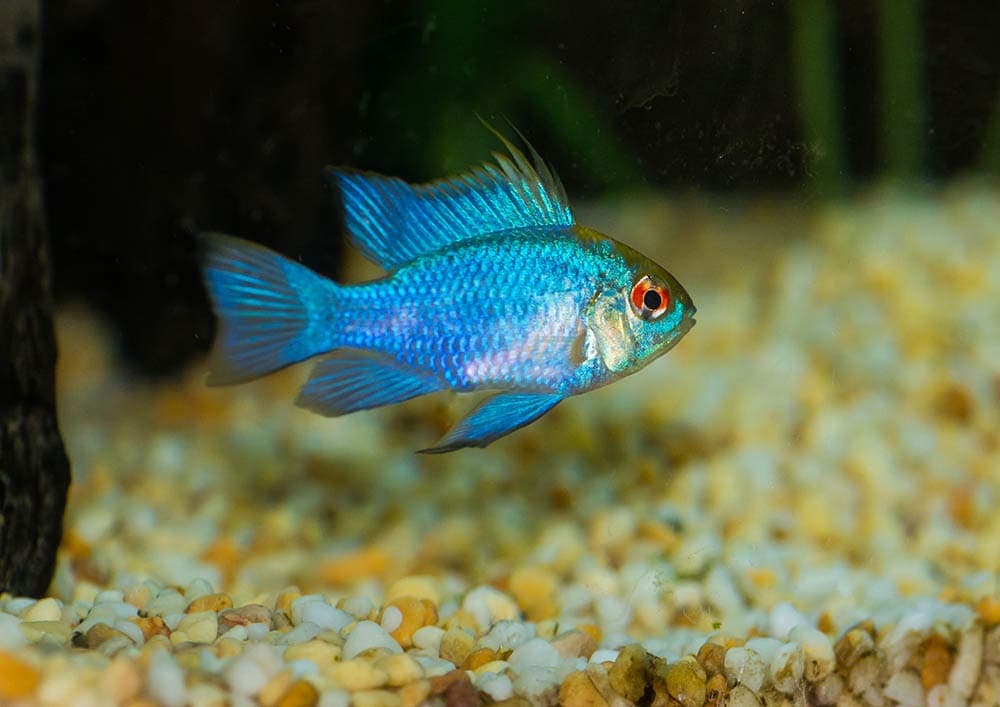
Electric Blue Rams are a fairly new color morph of the Common Ram Cichlid, having been introduced in 2009. They’re not as common as other Rams, but they’re still members of the Dwarf Cichlid family. This fish has a neon blue body, red eyes, and orange or yellow on the tops of their heads. Electric Blue Rams should be housed with others of the same temperament.
If you’re looking for tank makes for these beauties, our list of six of the best ones can help you fill your aquarium with friendly, happy little fish.
The 6 Ideal Tank Mates for Electric Blue Rams
1. Guppy (Poecilia reticulata) — Most Compatible Overall

| Size: | 0.06–2.4 inches |
| Diet: | Omnivorous |
| Minimum Tank Size: | 10 gallons per pair of fish |
| Care Level: | Easy |
| Temperament: | Peaceful, sociable |
Guppies can exist peacefully in a tank with other docile fish. Guppies and Electric Blue Rams both enjoy warmer water temperatures. They have similar diets, as they are both omnivorous. During feeding times, Rams may tend to hide and not compete for food, so it’s best to make sure the Guppies don’t eat it all up before the Rams can get to it.
2. Neon Tetra (Paracheirodon innesi) — Most Compatible for Small Tanks
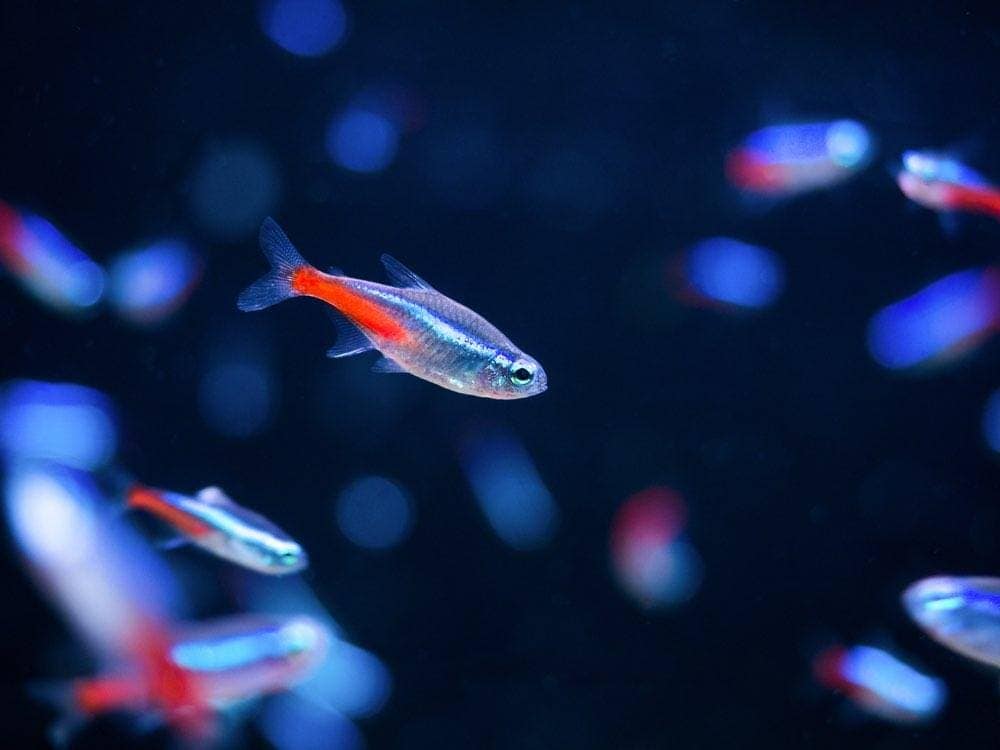
| Size: | 1.5 inches |
| Diet: | Omnivorous |
| Minimum Tank Size: | 3 gallons per fish |
| Care Level: | Easy |
| Temperament: | Peaceful, timid |
These brightly colored little fish make ideal tank mates for Electric Blue Rams. They are sensitive to changes in their environment, though. Neon Tetras should only be added to tanks that have been well-established and require little to no changing. Once they get used to a tank, they want it to remain the same. Too many changes at once can stress them out.
3. Silver Dollar (Metynnis argenteus) — Most Compatible for Large Aquariums
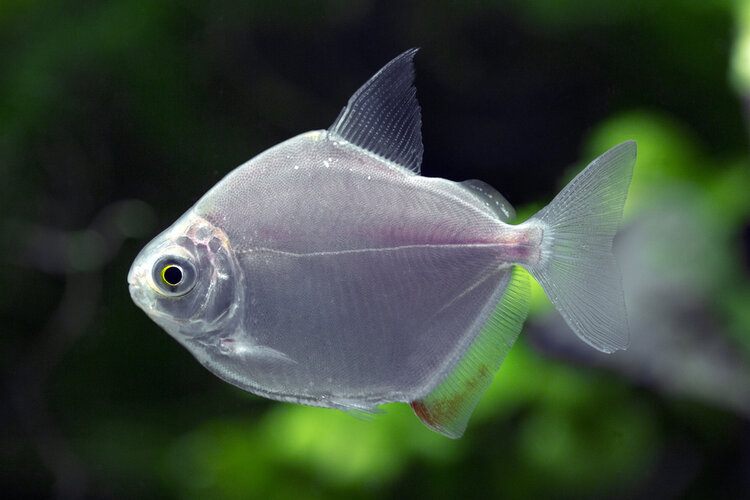
| Size: | 6 inches |
| Diet: | Vegetarian |
| Minimum Tank Size: | 20 gallons per fish |
| Care Level: | Intermediate |
| Temperament: | Peaceful, does well in community tanks |
Silver Dollar Fish are silver with flat, circular bodies resembling what gave them their name, the silver dollar. They’re actually docile and peaceful fish even though they’re related to piranhas. They don’t even eat the eggs or fry of other fish in the tank. Silver Dollar Fish enjoy a community, but they prefer other Silver Dollars to swim with together. They’re a schooling fish. They get along well with Electric Blue Rams, but you should keep at least five Silver Dollar Fish together in the tank to keep them happy and feeling safe.
4. Swordtail (Xiphophorus hellerii) — Best for Large Tanks
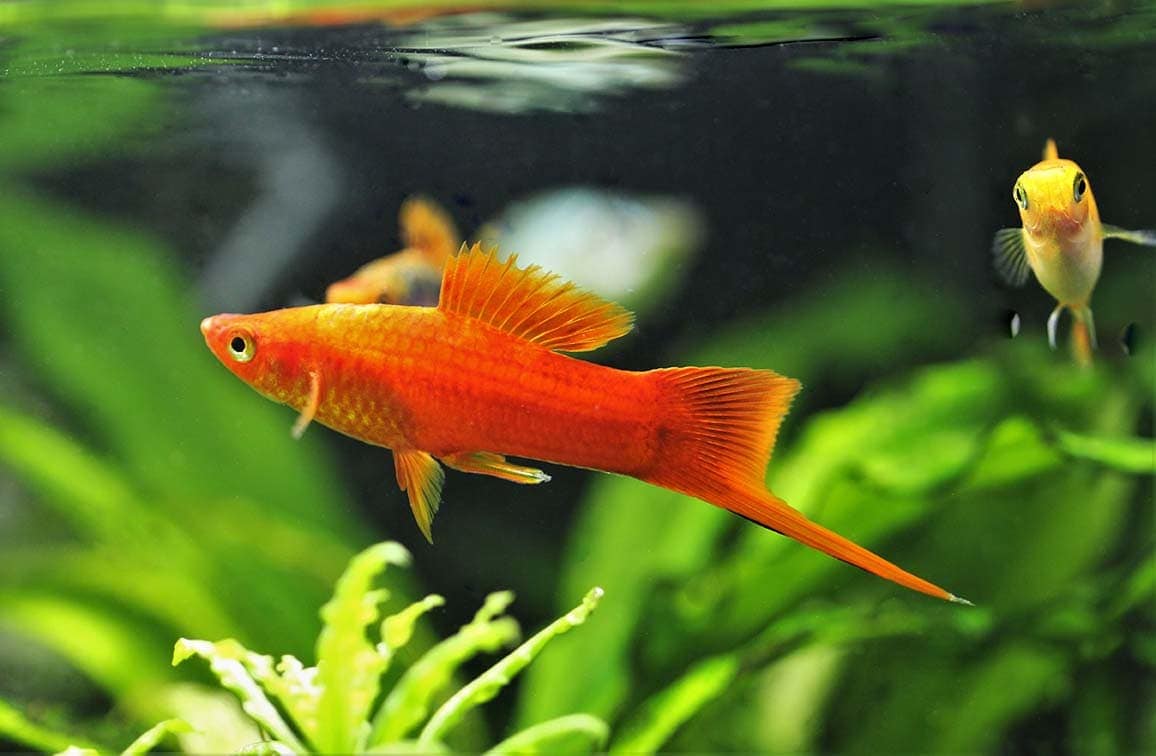
| Size: | 5.5–6 inches |
| Diet: | Omnivorous |
| Minimum Tank Size: | 15 gallons per fish |
| Care Level: | Easy |
| Temperament: | Peaceful but tough, can defend themselves if necessary |
The Swordtails often do well with Electric Blue Rams, but it’s necessary to make sure the water is at a warm temperature that they both can tolerate. Swordtails seem to tolerate water up to 79°F (26°C) while the Electric Blue Ram can tolerate up to 82°F (27°C). Swordtails are peaceful fish, but the males tend to get a little aggressive around breeding time. It’s best to keep one male and a few females to avoid fighting.
5. Black Phantom Tetra (Megalamphodus megalopterus)

| Size: | 1.75 inches |
| Diet: | Omnivorous |
| Minimum Tank Size: | 10 gallons per fish |
| Care Level: | Intermediate |
| Temperament: | Peaceful but sometimes territorial |
The Black Phantom Tetra is a schooling fish and prefers to be with at least five others of the same species. They eat a similar diet to the Electric Blue Ram and will also do well with Neon Tetras. They are known as fin-nippers, though, and will nip at the long, flowy fins of some species (for example, an Angelfish). They don’t show signs of aggression and are mostly peaceful, making them ideal tank mates with Rams.
6. Platy (Xiphophorus maculatus)
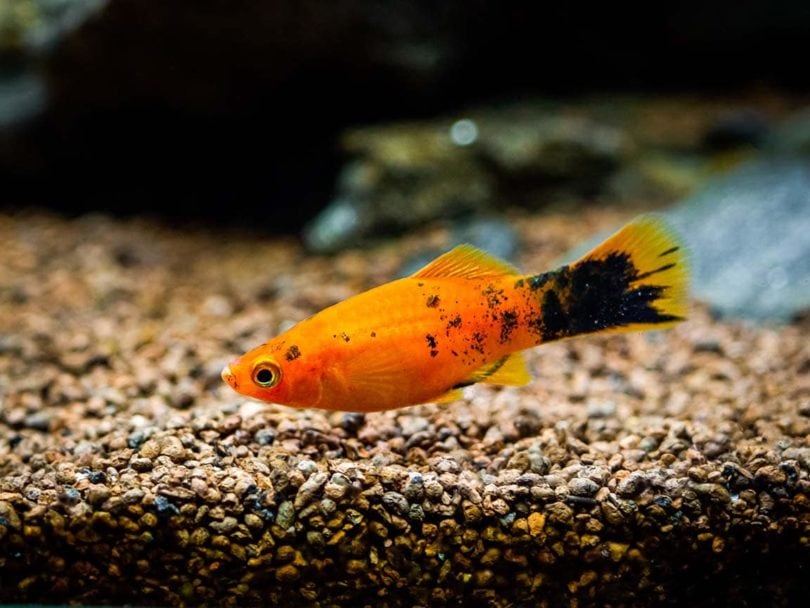
| Size: | 2–3 inches |
| Diet: | Omnivorous |
| Minimum Tank Size: | 10 gallons per fish |
| Care Level: | Easy |
| Temperament: | Peaceful |
Platies are peaceful little fish that get along well with others as long as they aren’t too big or aggressive. Swordtails, Neon Tetras, and Guppies also make excellent tank mates for Platies, so you can build an aquarium full of different fish along with the Electric Blue Ram. Platies are also schooling fish, and they’ll like a few others of their species in their environment.
What Makes a Good Tank Mate for Electric Blue Rams?
Electric Blue Rams will get along with fish of similar size and temperament. Peaceful fish that aren’t aggressive are ideal. The fish should also not be small enough to fit in the mouths of the Rams, or they can become dinner. They should also not be large enough to fit the Electric Blue Rams in their mouths. Tank mates should not be overly energetic and able to outswim the Rams at feeding time to devour all the food. As long as they can’t eat each other, can’t eat all the food, and are relatively calm and docile, they should all get along swimmingly.
Where Do Electric Blue Rams Prefer to Spend Their Time in the Aquarium?
Electric Blue Rams like open spaces for swimming and exercise. When they’re not choosing to be active, you can find them hiding in vegetation, which is what they do in their wild habitat as well. A tank with plenty of surface cover will make your Ram happy. Dense aquatic plants with surface cover or submerged plants on the bottom of the tank will provide them the hiding places that they like most. Make sure to leave enough open water for swimming. Caves and tunnels are also great options for hiding, sleeping, and resting.

Water Parameters
The Electric Blue Ram is an intentional captive-bred color of the Common Ram Cichlid fish. In the wild, Rams are native to South America. They can be found at the bottom of the Orinoco River Basin in Venezuela and Colombia, usually hiding in the aquatic vegetation when not feeding or swimming. Because of this, they can only tolerate warm water. Optimally, they like 82°F (27°C) but can tolerate a range of 78–85°F (26–30°C).
Size
The average adult Electric Blue Ram will reach 1.5–2 inches in length. While they’re small as adults, they require about 10 gallons per fish to thrive and be happy. A larger aquarium can comfortably hold your Rams and several tank mates, which are ideal for this fish.
Aggressive Behaviors
Peace is the name of the game with Electric Blue Rams, usually. The aggression that they show comes around breeding time. Tending to their eggs or trying to protect their offspring can bring out aggression in both males and females. If you notice your Ram showing aggression when breeding is not occurring, it could be because there aren’t enough hiding places available. Rams like to retreat and hide when they’re feeling stressed. If they can’t do this, they can get moody.
Top 2 Benefits of Having Tank Mates for Electric Blue Rams in Your Aquarium
1. They’re peaceful to watch.
The Electric Blue Rams and many of their ideal tank mates are beautiful, exhibiting vibrant colors and patterns. Watching all these gorgeous little fish swim around can have calming and stress-reducing effects.
2. They won’t get bored.
Electric Blue Rams and the fish on this list are social, preferring to swim with others instead of keeping to themselves. By giving your Rams tank mates, they will have company when they feel like being social and have places to hide when they want to be left alone. Friendships with other peaceful fish are enriching for them.
Other Cichlids
Choosing tank mates for your Electric Blue Ram might seem daunting, but they tend not to do well with other Cichlids. Even though they belong to the Cichlid family, they can be aggressive and territorial, especially during breeding time.
Final Thoughts
Whatever fish you choose as a tank mate for your Electric Blue Ram, there are a few things to consider. Similar water parameters, size, diet, temperament, and energy levels are essential to make sure your fish will all get along well without fighting or one group of fish hogging all the food. With the correct tank setup to make everyone happy, you can have a thriving community of beautiful fish that will live peacefully together.
Remember that Rams do best with fish that are about the same size as them. Every fish in the tank should not be able to fit another fish in their mouth. A feeling of safety is vital to the fish to keep them from getting stressed.
See also:
Featured Image Credit: Ian Grainger, Shutterstock



